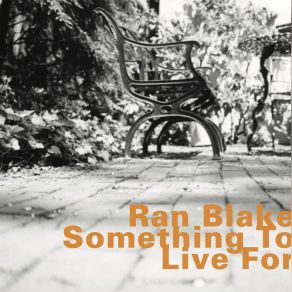Something to Live For
Download links and information about Something to Live For by Ran Blake. This album was released in 1999 and it belongs to Jazz, Avant Garde Jazz, Classical genres. It contains 19 tracks with total duration of 51:35 minutes.

|
|
|---|---|
| Artist: | Ran Blake |
| Release date: | 1999 |
| Genre: | Jazz, Avant Garde Jazz, Classical |
| Tracks: | 19 |
| Duration: | 51:35 |
| Buy it NOW at: | |
| Buy on iTunes $9.99 | |
| Buy on Songswave €1.45 | |
Tracks
[Edit]| No. | Title | Length |
|---|---|---|
| 1. | Elijah Rock 1 (Arr. J. Hairston) | 1:49 |
| 2. | Something to Live For (feat. David "Knife" Fabris) | 3:36 |
| 3. | Get out of Town | 4:39 |
| 4. | Enigma Suite: Part 1 (feat. Guillermo Gregorio) | 1:12 |
| 5. | Memphis | 6:00 |
| 6. | Vilna (feat. David "Knife" Fabris) | 3:24 |
| 7. | Enigma Suite: Part 2 (feat. Guillermo Gregorio) | 1:16 |
| 8. | Mood Indigo | 2:25 |
| 9. | Eclipse | 3:04 |
| 10. | Elijah Rock 2 (Arr. J. Hairston) | 1:20 |
| 11. | Enigma Suite: Part 3 (feat. Guillermo Gregorio) | 1:50 |
| 12. | Judy (feat. David "Knife" Fabris) | 5:18 |
| 13. | A Night in Tunisia | 2:29 |
| 14. | Enigma Suite: Part 4 (feat. Guillermo Gregorio) | 0:46 |
| 15. | Nightcrawler (feat. David "Knife" Fabris) | 2:23 |
| 16. | Throw It Away | 3:06 |
| 17. | Impresario of Death (feat. Guillermo Gregorio) | 3:45 |
| 18. | Doktor Mabuse (feat. David "Knife" Fabris) | 2:32 |
| 19. | Ghosts of Cimetière De Père Lachaise | 0:41 |
Details
[Edit]Ran Blake's tonal universe is a rich and varied one. Given his mastery of pianistic technique, his composer's sense of drama and timing, and the improviser's trust of his instincts when playing in unusual textural contexts, he has created a body work that, while outside the mainstream, shouldn't be. Only Bill Evans, Paul Bley, and Keith Jarrett could be said to have as wide a range of musical interests as Blake, but even these men — Bley an exception — reigned themselves in improvisation ally. Blake's vast expanse is governed by a barely hidden tenderness always. Whether the music approaches silence or the battlefields of warring gods, his hands firmly play — and sometimes err — on the side of the human heart. On this set, where the artist is featured solo and in duet, either with the guitar (David Fabris) or clarinet (Guillermo Gregorio), Blake uses the different tonalities these instruments bring to create more of an exposition of his own. There are the beautiful patterns of dueling guitar and piano chords that wind each other into a Moebius strip on Duke Ellington's tune which names this album. Then, there is the brief, almost whispered restraint of microtones explored between Blake and Gregorio on "Enigma Suite: Part 1" which gives way to "Memphis," a souled-out impressionistic (meaning Debussy) read of both Motown and Stax/Volt soul. With falling ninths moving into augmented sevenths and a shift into an off, minor key, the piece may come from the land of soul, but travels toward the village of the Pharoahs. Similarly, in his reading of Al Green's little-known gem "Judy," Fabris plays the melody through a series of seventh chords and Blake's harmony comes from inside the tune's bassline — and it's transformed by being played in the middle and upper registers on the piano. Blake's own "Impresario of Death" begins with a series of chords used by both Beethoven and Erik Satie! After the initial bravissimo opening, Blake moves to ppp for a few moments, ghosting out a melodic structure until Gregorio slides his own ghost dance into the mix, becoming the title's subject. He squeaks and squawks through Blake's gorgeous, ambiguous harmonies until four minutes and some odd seconds later, we are father away from an understanding of the "impresario" than ever before — though we know we've been visited by it. If you balance these highly experimental works — which would number all four parts of the "Enigma Suite" and the "Elijah Rock"'s I and II, all understated and played from inside — with well known jazz stalwarts such as "Night in Tunisia," "Mood Indigo," and Mingus' "Eclipse" you get a microscopic view of Blake's sound world, how truly vast and complex it is. And yet, it is always available, ready to reveal itself in all its totality, for virtually anyone who cares enough to approach it. This is what makes a genius: big vision and an accessible manner of offering it. But then, Ran Blake, if nothing else by the evidence of this single album, is a musical genius.